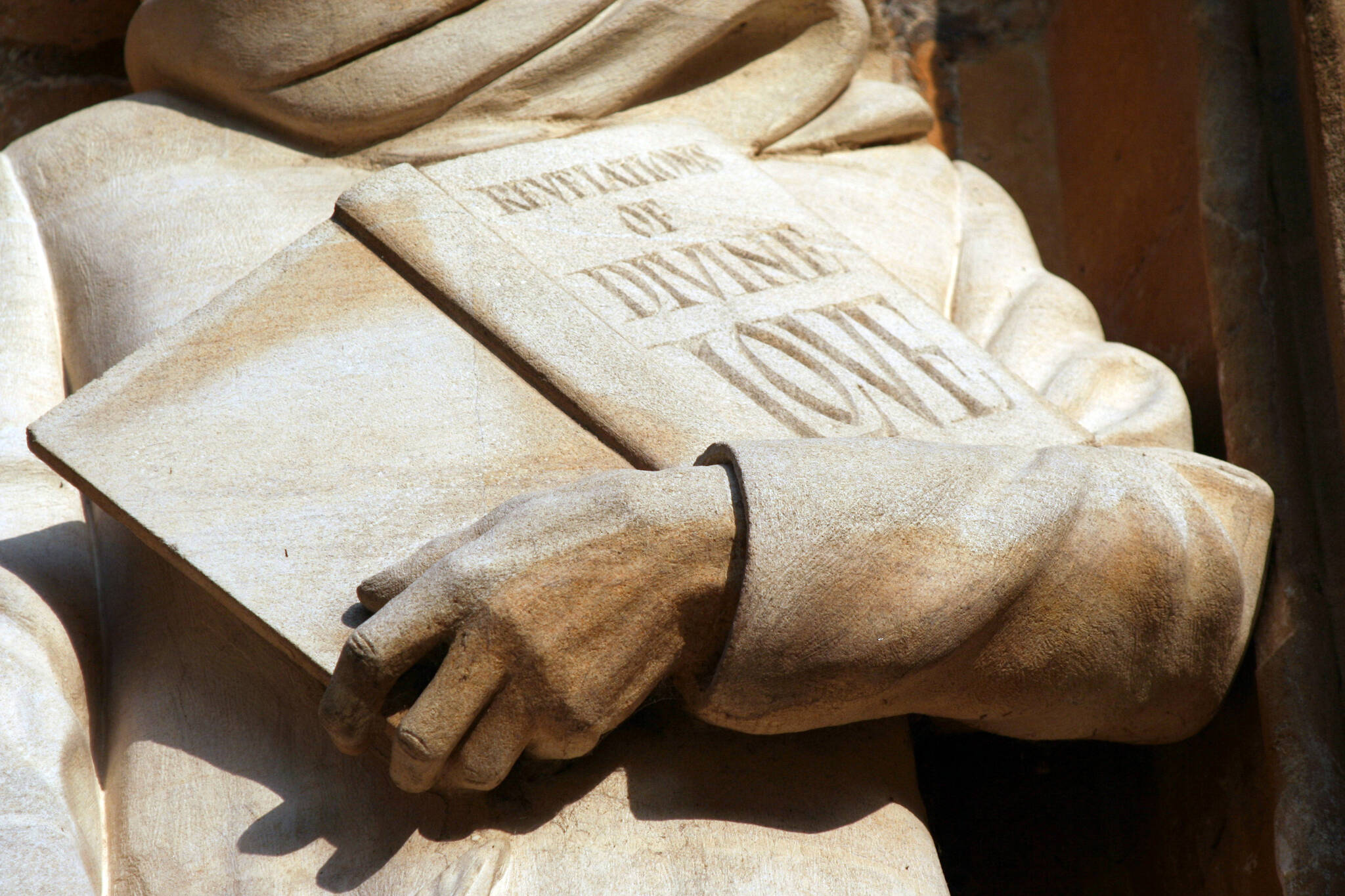Julian of Norwich was a mystic who lived in England during the Middles Ages. For a long time the only thing I knew about Julian was the saying attributed to her, “All shall be well, and all shall be well, and all manner of thing shall be well.” This most hopeful expression resonates deeply with me. However, as you will see, these were not Julian’s words, but those related to her in a vision.
Nearly all we know about Julian is through her book, “Revelations of Divine Love.” She was born in 1342 and lived in Norwich, England, until at least 1416. She lived through the Black Death and times of great poverty and famine. For most of her life Julian was an anchoress — living by herself in a small room attached to the church of St. Julian in Norwich (hence the name we know her by). When she was 30, she was afflicted with a severe illness that appeared to be fatal. Last rites had been administered to her and she was ready to die when in the early morning hours of May 8, 1373, she received a series of 15 revelations, or “showings,” from Jesus.
After recovering from her near-death experience Julian wrote down an account of her revelations. Twenty years later she wrote a longer version, in which she added additional insights that she had discerned while contemplating her visions. Her book is the earliest surviving work written in English by a woman. Revelations has a deep-down ring of authenticity to it. It shows the reflections of an intelligent, loving, and down-to-earth woman who trusts deeply in the love and providence of God, while not shirking the realities of fear, doubt, and difficult theological questions.
The overarching message she received from Jesus that permeates her book is that we come forth from God, will return to God, and all through our journeys nothing can separate us from God. Our compassionate Creator loves us completely and eternally and ultimately we have nothing to fear. Julian learned in her revelations that there is no wrath or vengeance in God, only love. And we are to respond to that love by loving God and all those in our paths.
In one of her revelations, Julian is shown a small hazelnut, which seemed so fragile and insignificant to her that she wondered why it did not crumble before her eyes. She was led to understand that the nut represented the entire universe. She marveled that something so small could endure and not disappear. And she was told that it lasts and always will because God loves it. She writes:
“In this little thing I saw three properties. The first is that God made it. The second is that God loves it. And the third is that God keeps it.”
In words likely shocking to an audience in the Middle Ages (and to many today), Julian writes, “So Jesus Christ is our real Mother. We owe our being to him—and this is the essence of motherhood — and all the delightful, loving protection that ever follows. Just as God is our Father, so God is also our Mother.”
Julian speaks of a great yearning for God. She states, “We continue to long for God until we die, and with this longing goes rejoicing.”
In her most well-known showing, Julian received an answer to a question that had long troubled her regarding why there is sin in the world. Jesus assured her that despite the presence of sin, which is the cause of pain, “All shall be well, and all shall be well, and all manner of thing shall be well.” While this revelation did not eliminate Juilan’s earthly travails — she suffered physical and spiritual pain, doubt and darkness — it allowed her to move forward in trust that ultimately love will prevail.
For the rest of her long life she lived as an anchoress, praying, meditating on her revelations and providing spiritual guidance to many. Julian of Norwich is a mystic whose message of love and trust in God’s goodness are much needed in our time. In all times.
• The Episcopalian, Lutheran, and Anglican churches celebrate Julian’s Feast Day next week on May 8. The Catholic Church has a similar celebration on May 13. A Juneauite since 1984, Tim Spengler is a parishioner at Holy Trinity Episcopal Church. He has a spiritual direction practice. More information is available at www.spenglerspiritualdirection.com/. “Living & Growing” is a weekly column written by different authors and submitted by local clergy and spiritual leaders. It appears every Friday on the Juneau Empire’s Faith page.

